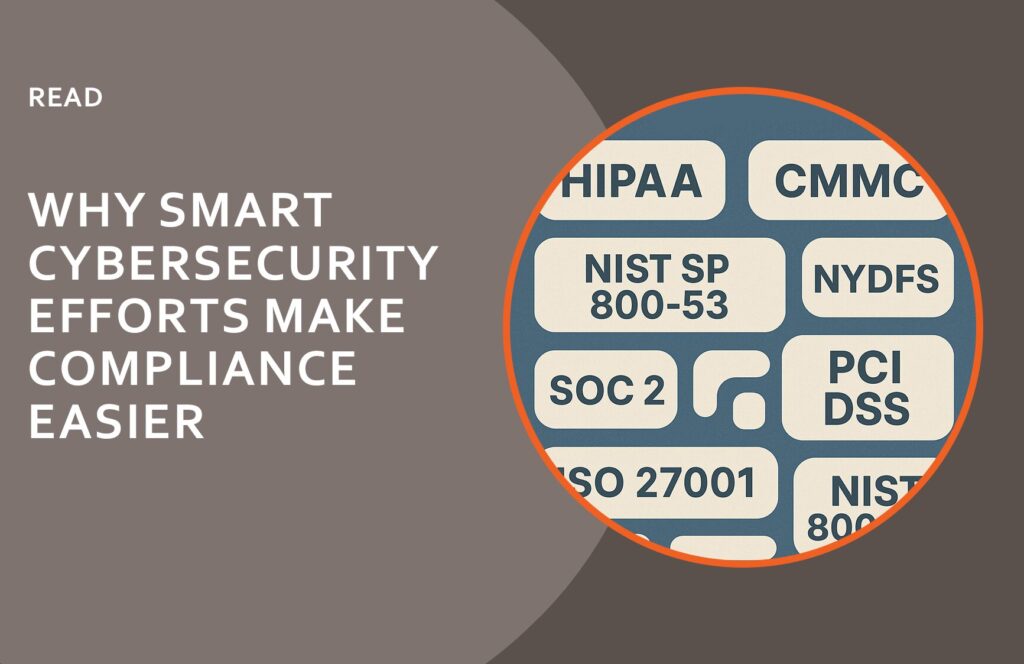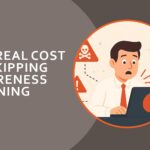READ: Why Smart Cybersecurity Efforts Make Compliance Easier

There’s a common misconception among small businesses: if you’re checking some of the cybersecurity compliance boxes, you’re secure. But compliance is the floor, not the ceiling. And if you’re aiming to reduce risk and not just avoid fines, you need a ‘culture of security’ mindset that puts real-world threats front and center.
Here’s the thing: regulations like HIPAA, CMMC, and NYSDFS weren’t written to make your life difficult (though they may succeed at that). They exist because cyber threats are real, and bad actors don’t care how big your business is—or how small your budget might be. Compliance is just a structured way of saying, “Do the right things, and prove it.”
But here’s where things often break down: many small businesses focus on compliance only when required—like during a customer audit, when trying to win new business, cyber insurance renewal, or regulatory filing. That reactive approach can lead to rushed decisions, poor documentation, and cybersecurity practices that look great on paper but fall apart under pressure.
And that pressure seems to be mounting. We’ve seen an uptick in Incident Response calls from small businesses over the past several months and we expect the trend to continue with the wide-spread adoption of new technologies like AI by cybercriminals, making it easier for them to deploy sophisticated attacks on a broader swath of businesses.
A stronger path forward? Build your strategy as if cybersecurity compliance didn’t exist. When you focus on doing what actually reduces risk, such as defining roles and responsibilities, building awareness across teams, and preparing for incidents, you’ll be surprised how quickly the compliance requirements fall into place.
Start with accountability. Write someone’s name down next to the assignment. Then find a Cybersecurity Partner that can help you understand what things to do and in what order to fit your business mission. Then align your practices with reality: your data is valuable, your people are vulnerable, and your decisions matter.






